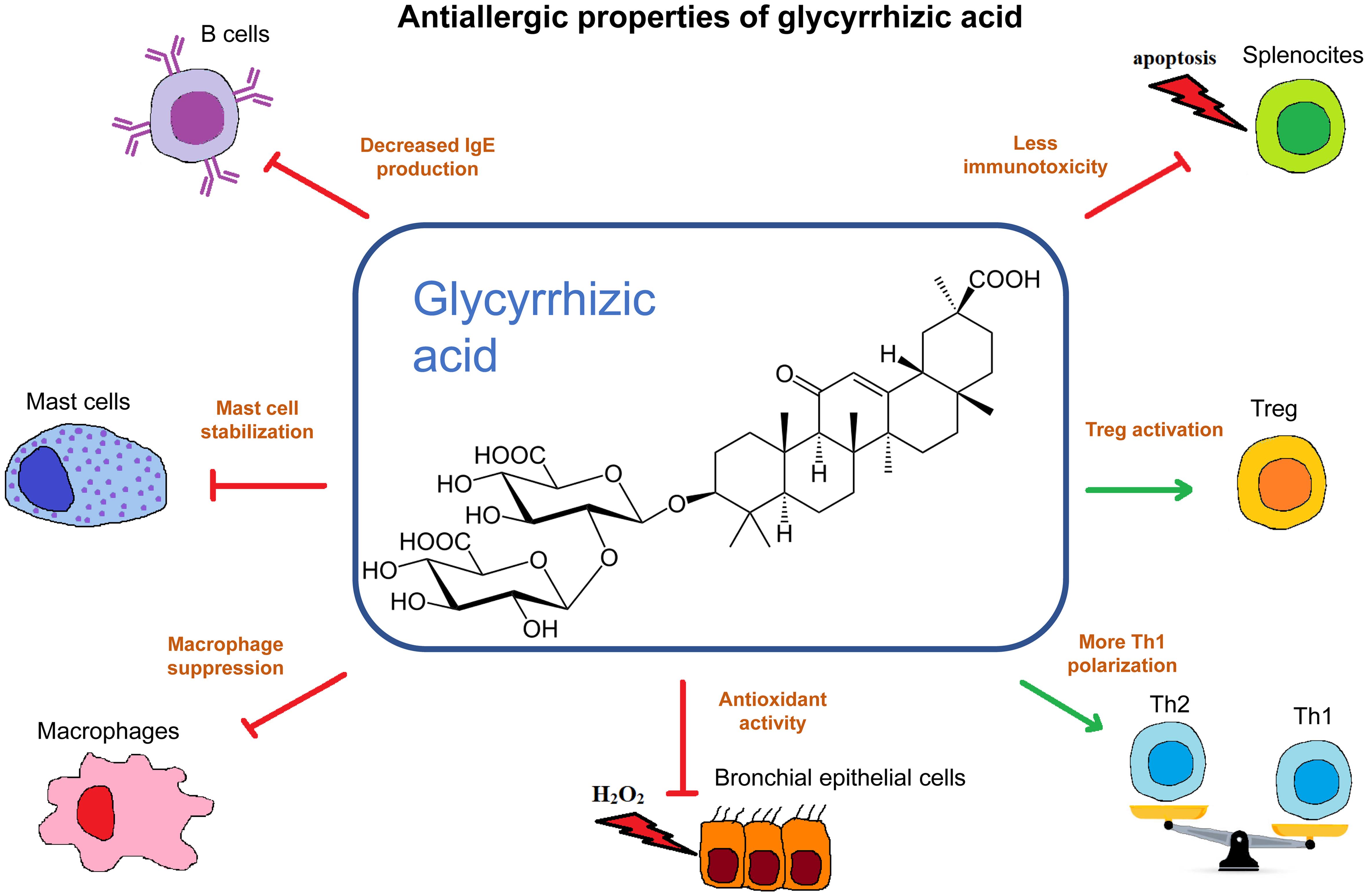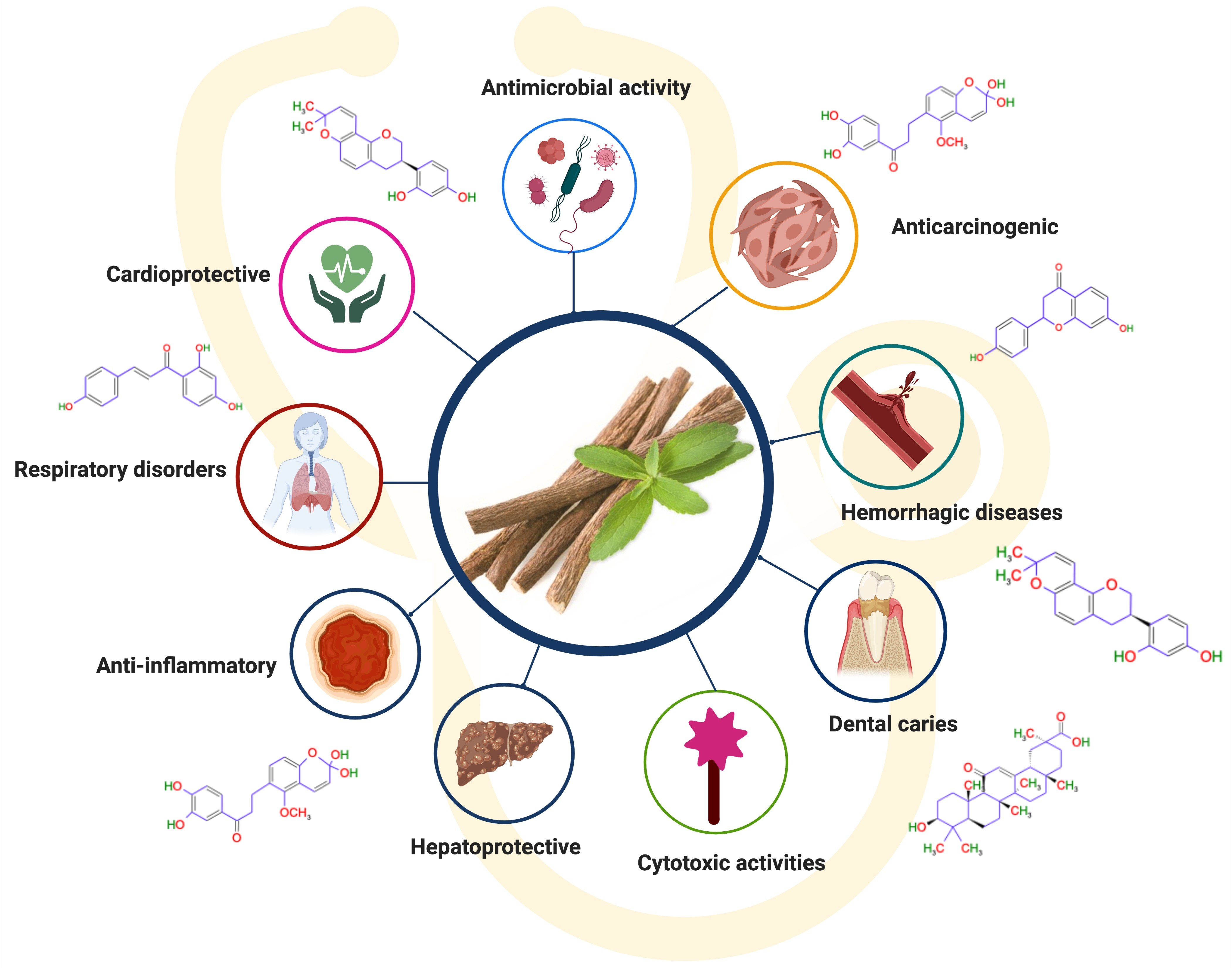Glycyrrhetinic acid powder, derived from licorice root, has gained attention in recent years for its potential benefits to digestive health. This natural compound has been used in traditional medicine for centuries, and modern research is beginning to uncover its mechanisms of action and potential applications. In this blog post, we'll explore the relationship between glycyrrhetinic acid powder and digestive health, examining its effects on various aspects of the gastrointestinal system.
How does Glycyrrhetinic Acid Powder affect stomach acid production?
Glycyrrhetinic acid powder has been shown to have a significant impact on stomach acid production, which plays a crucial role in digestive health. The compound works by modulating the activity of certain enzymes involved in gastric acid secretion, potentially helping to maintain a healthy balance of stomach acid levels.

Research has indicated that glycyrrhetinic acid can inhibit the activity of 11β-hydroxysteroid dehydrogenase type 2 (11β-HSD2), an enzyme that plays a role in regulating acid secretion in the stomach. By inhibiting this enzyme, glycyrrhetinic acid may help reduce excessive stomach acid production, which can be beneficial for individuals suffering from conditions such as acid reflux or gastroesophageal reflux disease (GERD).
Moreover, glycyrrhetinic acid has been found to have a protective effect on the gastric mucosa, the lining of the stomach that helps defend against the corrosive effects of stomach acid. This protective action is thought to be due to its ability to stimulate the production of prostaglandins, which are compounds that help maintain the integrity of the stomach lining and promote mucus secretion.
In addition to its effects on stomach acid production, glycyrrhetinic acid may also help alleviate symptoms associated with peptic ulcers. Studies have shown that it can inhibit the growth of Helicobacter pylori, a bacterium known to cause stomach ulcers. By reducing the bacterial load, glycyrrhetinic acid may help promote healing of the gastric mucosa and reduce inflammation in the stomach.
It's important to note that while glycyrrhetinic acid powder may help regulate stomach acid production, it should not be used as a substitute for prescribed medications without consulting a healthcare professional. Individuals with pre-existing digestive conditions should seek medical advice before incorporating glycyrrhetinic acid powder into their diet or supplement regimen.
Can Glycyrrhetinic Acid Powder improve gut inflammation?
Glycyrrhetinic acid powder has shown promising potential in addressing gut inflammation, a common issue that can lead to various digestive disorders. The anti-inflammatory properties of this compound make it an interesting subject of study for researchers looking into natural remedies for inflammatory bowel conditions.
One of the primary mechanisms by which glycyrrhetinic acid may help improve gut inflammation is through its ability to modulate the immune response in the gastrointestinal tract. Studies have shown that glycyrrhetinic acid can inhibit the production of pro-inflammatory cytokines, which are signaling molecules that promote inflammation. By reducing the levels of these inflammatory mediators, glycyrrhetinic acid may help alleviate symptoms associated with inflammatory bowel diseases such as Crohn's disease and ulcerative colitis.

Furthermore, glycyrrhetinic acid has been found to have antioxidant properties, which can be beneficial in reducing oxidative stress in the gut. Oxidative stress occurs when there is an imbalance between the production of harmful free radicals and the body's ability to neutralize them. This imbalance can contribute to inflammation and tissue damage in the gastrointestinal tract. By acting as an antioxidant, glycyrrhetinic acid may help protect the gut lining from oxidative damage and promote overall gut health.
Research has also suggested that glycyrrhetinic acid may have a positive impact on the gut microbiome, the complex community of microorganisms that inhabit the digestive tract. A healthy gut microbiome is essential for proper digestion, nutrient absorption, and immune function. Some studies have indicated that glycyrrhetinic acid may help promote the growth of beneficial bacteria while inhibiting the growth of potentially harmful microorganisms. This prebiotic-like effect could contribute to improved gut health and reduced inflammation.
Additionally, glycyrrhetinic acid has been shown to have a healing effect on the intestinal mucosa. It may help promote the regeneration of damaged intestinal cells and strengthen the gut barrier function. A strong gut barrier is crucial for preventing the entry of harmful substances into the bloodstream and maintaining overall digestive health.
While these findings are promising, it's important to note that more research is needed to fully understand the effects of glycyrrhetinic acid powder on gut inflammation in humans. As with any supplement, individuals should consult with a healthcare professional before using glycyrrhetinic acid powder to address gut inflammation, especially if they have pre-existing digestive conditions or are taking medications.
What role does Glycyrrhetinic Acid Powder play in promoting healthy digestion?
Glycyrrhetinic acid powder plays a multifaceted role in promoting healthy digestion, contributing to various aspects of gastrointestinal function. Its diverse effects on the digestive system make it a compound of interest for those seeking natural ways to support their digestive health.
One of the key ways in which glycyrrhetinic acid powder promotes healthy digestion is through its ability to support the integrity of the gastrointestinal lining. The compound has been shown to stimulate the production of mucin, a glycoprotein that forms a protective layer over the epithelial cells lining the digestive tract. This mucus layer acts as a barrier against harmful substances and helps maintain the overall health of the gut lining. By promoting the production of this protective barrier, glycyrrhetinic acid may help prevent damage to the intestinal walls and reduce the risk of conditions such as leaky gut syndrome.
Glycyrrhetinic acid also demonstrates potential in supporting proper nutrient absorption. Some studies suggest that it may enhance the absorption of certain nutrients by improving the function of intestinal transporters. This could be particularly beneficial for individuals with malabsorption issues or those looking to optimize their nutrient intake from food and supplements.
Another important aspect of glycyrrhetinic acid's role in promoting healthy digestion is its potential to support regular bowel movements. The compound has been found to have mild laxative properties, which may help alleviate constipation and promote regularity. This effect is thought to be due to its ability to stimulate the secretion of water and electrolytes into the intestinal lumen, softening stools and facilitating their passage through the digestive tract.
Glycyrrhetinic acid powder may also contribute to digestive health by supporting the body's natural detoxification processes. Some research suggests that it can enhance the activity of certain liver enzymes involved in the metabolism and elimination of toxins. By supporting liver function, glycyrrhetinic acid may indirectly promote better digestion and overall gastrointestinal health.
Furthermore, glycyrrhetinic acid has been shown to have antimicrobial properties, which could be beneficial in maintaining a healthy balance of microorganisms in the gut. By selectively inhibiting the growth of potentially harmful bacteria while promoting the growth of beneficial strains, glycyrrhetinic acid may help maintain a healthy gut microbiome, which is essential for proper digestion and overall health.
It's worth noting that glycyrrhetinic acid's effects on digestion may also extend to its potential role in managing digestive discomfort. Some studies have suggested that it may help alleviate symptoms such as bloating, gas, and indigestion. This could be due to its anti-inflammatory properties and its ability to modulate smooth muscle function in the gastrointestinal tract.
While the potential benefits of glycyrrhetinic acid powder for digestive health are promising, it's important to approach its use with caution. As with any supplement, individual responses may vary, and some people may be more sensitive to its effects than others. It's always advisable to start with a low dose and gradually increase as tolerated, under the guidance of a healthcare professional.
In conclusion, glycyrrhetinic acid powder appears to play a multifaceted role in promoting healthy digestion. From supporting the integrity of the gut lining to enhancing nutrient absorption, promoting regular bowel movements, and maintaining a healthy gut microbiome, this compound offers a range of potential benefits for digestive health. As research in this area continues to evolve, we may gain even more insights into the mechanisms by which glycyrrhetinic acid supports digestive function and overall gastrointestinal well-being.
If you are also interested in this product and want to know more product details, or want to know about other related products, please feel free to contact sasha_slsbio@aliyun.com.
References
- Wang, L., et al. (2018). Glycyrrhizic acid and 18β-glycyrrhetinic acid modulate lipopolysaccharide-induced inflammatory response by suppression of NF-κB through PI3K p110δ and p110γ inhibitions. Journal of Agricultural and Food Chemistry, 66(1), 362-369.
- Kao, T. C., et al. (2010). Inhibition of 11β-hydroxysteroid dehydrogenase by glycyrrhetinic acid in human and rat liver microsomes. Toxicology and Applied Pharmacology, 246(3), 129-134.
- Fukai, T., et al. (2003). Anti-Helicobacter pylori flavonoids from licorice extract. Life Sciences, 71(12), 1449-1463.
- Ishida, T., et al. (2013). Glycyrrhetinic acid suppresses alginate-induced inflammation in human intestinal epithelial cells and attenuates the severity of dextran sodium sulfate-induced colitis in mice. PLoS One, 8(11), e80735.
- Chen, H. Y., et al. (2014). Glycyrrhetinic acid activates peroxisome proliferator-activated receptor γ and attenuates the inflammatory response in lipopolysaccharide-stimulated RAW264.7 macrophages. Journal of Agricultural and Food Chemistry, 62(40), 9765-9772.
- Sil, R., et al. (2015). Glycyrrhizin ameliorates metabolic syndrome-induced liver damage in experimental rat model. Molecular and Cellular Biochemistry, 409(1-2), 177-189.
- Li, J. Y., et al. (2014). Glycyrrhetinic acid exerts antioxidative effects in H2O2-treated human umbilical vein endothelial cells and rat aortic smooth muscle cells. Acta Pharmacologica Sinica, 35(9), 1188-1196.
- Bian, Z., et al. (2019). Glycyrrhetinic acid protects against acetaminophen-induced acute liver injury via activating autophagy and inhibiting oxidative stress and inflammation. European Journal of Pharmacology, 849, 149-158.
- Xu, C., et al. (2017). Glycyrrhizin ameliorates imiquimod-induced psoriasis-like skin lesions in BALB/c mice and inhibits TNF-α-induced ICAM-1 expression via NF-κB/MAPK in HaCaT cells. Cellular Physiology and Biochemistry, 41(2), 547-560.
- Yang, R., et al. (2017). Glycyrrhetinic acid: A potential natural compound for the treatment of metabolic syndrome. Acta Pharmaceutica Sinica B, 7(2), 219-226.

